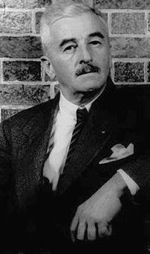Vin Scully said last night that he would continue to serve as the Los Angeles Dodgers play-by-play announcer through the 2010 season. Scully, who turns 82 this month, began broadcasting Dodgers games in 1950.

Contrarian began listening to him not long after as a devoted
Brooklyn Dodger fan living in Chappaqua, NY. Hiding under bed covers, ear pressed to the radio speaker, we heard games come alive through Scully's gift for vivid similes.
He said Bob Gibson "pitches as though he's double-parked." He said, "Losing feels worse than winning feels good." He said, "Sometimes it seems like [Bobby Bonilla's] playing underwater." He said, "Statistics are used much like a drunk uses a lamp post: for support, not illumination." He said, "When [Maury Wills] runs, it's all downhill."
While calling 1987 All-Star Game, Scully saw the Toronto Blue Jay's uber-smooth shortstop Tony Fernandez for the first time. "He's like a bolt of silk," Scully said.
Because of Scully's gift for words, we still prefer listening to baseball on the radio over watching it on TV. On the radio, games unfolds in your mind, unconstrained by camera angles and closeups. As the Terry Cashman tune puts it. "I saw it on the radio."
After the jump, the word-for-word transcript of Scully calling the 9th inning of Sandy Koufax's Perfect Game, September 9, 1965:
11 November, 2009

 Contrarian began listening to him not long after as a devoted Brooklyn Dodger fan living in Chappaqua, NY. Hiding under bed covers, ear pressed to the radio speaker, we heard games come alive through Scully's gift for vivid similes.
He said Bob Gibson "pitches as though he's double-parked." He said, "Losing feels worse than winning feels good." He said, "Sometimes it seems like [Bobby Bonilla's] playing underwater." He said, "Statistics are used much like a drunk uses a lamp post: for support, not illumination." He said, "When [Maury Wills] runs, it's all downhill."
While calling 1987 All-Star Game, Scully saw the Toronto Blue Jay's uber-smooth shortstop Tony Fernandez for the first time. "He's like a bolt of silk," Scully said.
Because of Scully's gift for words, we still prefer listening to baseball on the radio over watching it on TV. On the radio, games unfolds in your mind, unconstrained by camera angles and closeups. As the Terry Cashman tune puts it. "I saw it on the radio."
After the jump, the word-for-word transcript of Scully calling the 9th inning of Sandy Koufax's Perfect Game, September 9, 1965:
Contrarian began listening to him not long after as a devoted Brooklyn Dodger fan living in Chappaqua, NY. Hiding under bed covers, ear pressed to the radio speaker, we heard games come alive through Scully's gift for vivid similes.
He said Bob Gibson "pitches as though he's double-parked." He said, "Losing feels worse than winning feels good." He said, "Sometimes it seems like [Bobby Bonilla's] playing underwater." He said, "Statistics are used much like a drunk uses a lamp post: for support, not illumination." He said, "When [Maury Wills] runs, it's all downhill."
While calling 1987 All-Star Game, Scully saw the Toronto Blue Jay's uber-smooth shortstop Tony Fernandez for the first time. "He's like a bolt of silk," Scully said.
Because of Scully's gift for words, we still prefer listening to baseball on the radio over watching it on TV. On the radio, games unfolds in your mind, unconstrained by camera angles and closeups. As the Terry Cashman tune puts it. "I saw it on the radio."
After the jump, the word-for-word transcript of Scully calling the 9th inning of Sandy Koufax's Perfect Game, September 9, 1965:
 James Fallows, author, Atlantic Magazine writer, and erstwhile speechwriter for President Jimmy Carter, has
James Fallows, author, Atlantic Magazine writer, and erstwhile speechwriter for President Jimmy Carter, has